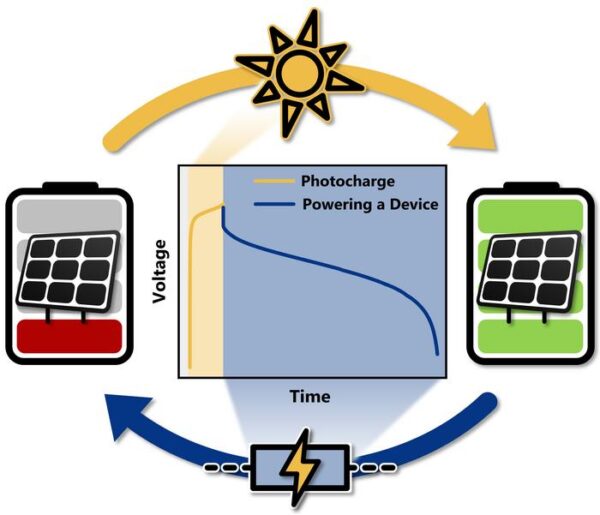
In a groundbreaking development, scientists at the University of Freiburg in Germany have introduced an organic energy storage system that holds immense potential for the Internet of Things (IoT) landscape. This innovative technology combines a multi-junction organic solar cell with a dual-ion organic battery, presenting a compact and efficient solution for IoT devices that operate autonomously.
Revolutionizing IoT Energy Needs
The Internet of Things is a fast-growing network of interconnected devices, and the power requirements for these miniature gadgets are of utmost importance. IoT devices, which often have stringent size limitations, demand compact energy sources. The newly developed photo-battery seems poised to meet this need with remarkable efficiency.
The Technology Behind the Breakthrough
The heart of this innovation lies in the marriage of a multi-junction organic solar cell and a dual-ion organic battery. The organic solar cell, a 1 cm2 device, boasts an inverted architecture comprising five cell units. Each unit includes a substrate of glass and indium tin oxide (ITO), an electron transport layer of zinc oxide (ZnO), an organic absorber utilizing polymers PM6 and PC60BM, a hole transport layer based on PEDOT:PSS, and a silver metal contact.
One of the most significant achievements of this technology is its solar cell’s open-circuit voltage, which reaches an impressive 4.2 V under 1 Sun illumination conditions. This voltage level allows the photovoltaic dual-ion battery to be charged in under 15 minutes, even with discharge capacities of up to 22 mAh/g.
Organic Photovoltaic Dual-Ion Battery

Key Performance Metrics
The organic photovoltaic dual-ion battery offers an average discharge potential of 3.6 V, an energy density of 69 mWh/g, and a power density of 95 mW/g. These metrics make it a promising energy source for low-power IoT applications.
Future Implications and Potential
This groundbreaking development signifies a substantial leap forward in the quest for compact energy sources suitable for integrated IoT applications. Researchers are confident that the organic materials used in this technology hold the key to future advancements in the IoT sector.
Conclusion
The organic photo-battery developed by researchers at the University of Freiburg is a game-changing innovation in the realm of IoT energy solutions. Its ability to deliver high voltage levels efficiently makes it a potential game-changer in the field of autonomous, miniature IoT devices.

To Learn More – Information Courtesy
